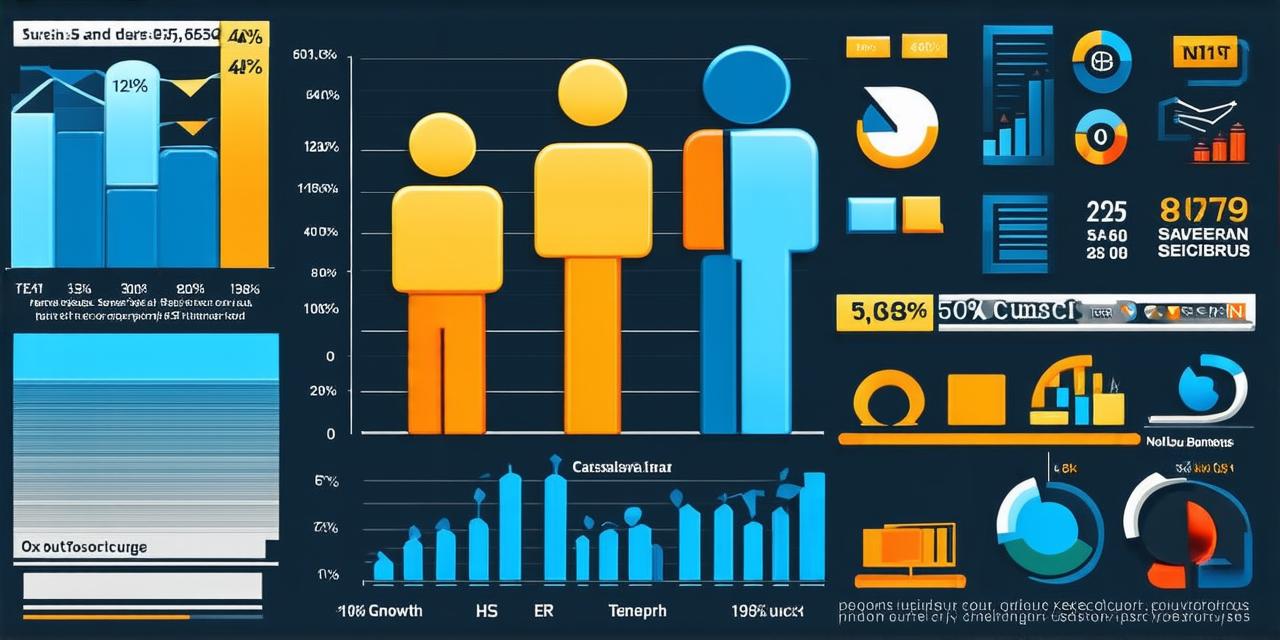Introduction:
Human resources (HR) outsourcing is a popular business practice that allows organizations to outsource their HR functions to third-party providers. This practice has gained significant traction in recent years due to the numerous benefits it offers, including cost savings, increased efficiency, and access to specialized expertise. In this article, we will explore the market size of HR outsourcing, the trends driving its growth, and the opportunities available for businesses looking to outsource their HR functions.
Market Size of HR Outsourcing:
According to a report by MarketsandMarkets, the global HR services market is expected to grow at a CAGR of 8.5% from 2021 to 2026. This growth is driven by several factors, including the increasing focus on cost savings and efficiency, the growing need for specialized expertise, and the rising demand for flexible work arrangements.
The market size of HR outsourcing can be segmented based on various parameters, such as geography, service type, and organization size. In terms of geography, North America is the largest market for HR outsourcing, followed by Europe and Asia Pacific. Within each region, there are various countries that have a significant demand for HR outsourcing services.
In terms of service type, payroll processing is the most commonly outsourced HR function, accounting for over 50% of the total market share. Other popular services include benefits administration, recruitment and hiring, and training and development.
Trends Driving the Growth of HR Outsourcing:
There are several trends driving the growth of HR outsourcing, including:
1. Cost Savings: One of the primary reasons organizations outsource their HR functions is to reduce costs. By outsourcing HR tasks, companies can save on salaries, benefits, and other expenses associated with HR operations.
2. Increased Efficiency: Outsourcing HR tasks can also help organizations increase efficiency. Third-party providers have specialized expertise in HR operations and can handle routine tasks, freeing up internal resources to focus on core business activities.
3. Specialized Expertise: Many third-party providers offer specialized expertise that may not be available internally. For example, some providers specialize in compliance with labor laws and regulations, while others have experience in recruiting for specific industries or job functions.
4. Flexible Work Arrangements: The rise of remote work and flexible work arrangements has also increased the demand for HR outsourcing services. Third-party providers can help organizations manage their remote workforce and ensure compliance with labor laws and regulations.
Opportunities in the HR Outsourcing Market:
There are several opportunities available for businesses looking to outsource their HR functions, including:
1. Customized Solutions: Many third-party providers offer customized solutions that can be tailored to meet the specific needs of individual organizations. This allows companies to choose the services they need and avoid paying for unnecessary services.
2. Scalability: Outsourcing HR tasks also provides scalability, allowing organizations to easily expand or contract their HR operations as needed. This is particularly useful for businesses with fluctuating workloads or seasonal spikes in demand.
3. Access to Technology: Third-party providers often have access to the latest HR technology and can help organizations implement new systems and processes to improve efficiency and reduce costs.
4. Compliance Support: Outsourcing HR tasks also provides compliance support, ensuring that organizations are in compliance with labor laws and regulations. This can help reduce the risk of legal action and protect the organization’s reputation.
Case Study: XYZ Corporation
XYZ Corporation is a mid-sized manufacturing company based in the United States. The company had been handling its own HR operations, but found that it was becoming increasingly difficult to keep up with the growing demand for HR services. To address this challenge, the company outsourced its payroll processing and benefits administration functions to a third-party provider.
By outsourcing these tasks, XYZ Corporation was able to reduce its costs and improve efficiency. The third-party provider also had access to specialized expertise in payroll and benefits administration, ensuring that the company was in compliance with labor laws and regulations. Additionally, the provider offered customized solutions that were tailored to meet the specific needs of XYZ Corporation.
Conclusion:
The market size of HR outsourcing is expected to continue growing in the coming years due to the numerous benefits it offers, including cost savings, increased efficiency, and access to specialized expertise. By outsourcing their HR functions, organizations can free up internal resources to focus on core business activities, while also benefiting from the expertise and technology of third-party providers. As demonstrated by XYZ Corporation’s experience, outsourcing HR tasks can be a smart business decision that helps organizations improve efficiency and reduce costs.
FAQs:

1. What are the most commonly outsourced HR functions?
Payroll processing, benefits administration, recruitment and hiring, training and development, and compliance support are some of the most commonly outsourced HR functions.
2. How can HR outsourcing help organizations reduce costs?
By outsourcing HR tasks, companies can save on salaries, benefits, and other expenses associated with HR operations. Additionally, third-party providers often offer more cost-effective solutions than internal HR departments.
3. What are the risks associated with outsourcing HR tasks?
The main risk associated with outsourcing HR tasks is data security and compliance. Organizations must ensure that their third-party provider has appropriate security measures in place to protect sensitive employee information and that the provider is compliant with labor laws and regulations.
4. How can organizations choose the right HR outsourcing provider?
Organizations should carefully evaluate potential providers based on their expertise, experience, and ability to customize solutions to meet their specific needs. Additionally, it is important to review the provider’s security measures and compliance certifications to ensure data protection and legal compliance.
